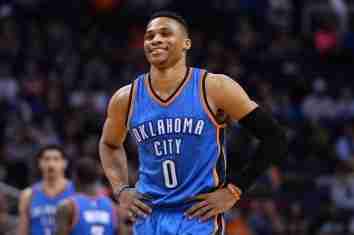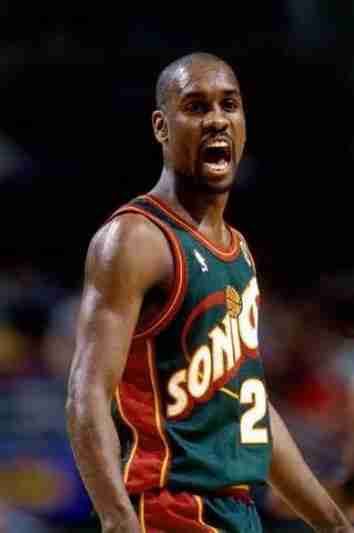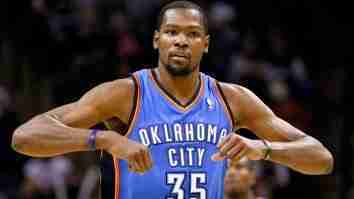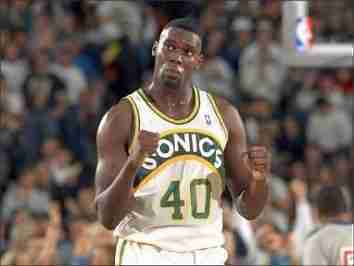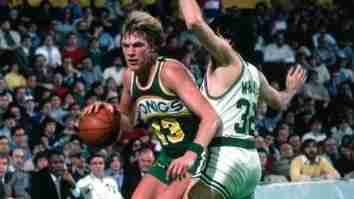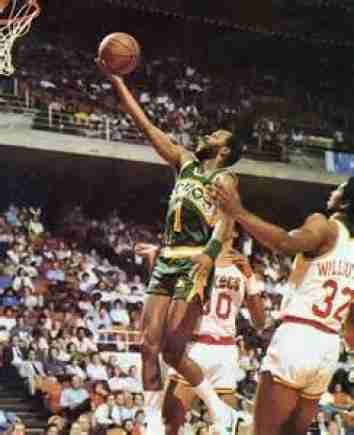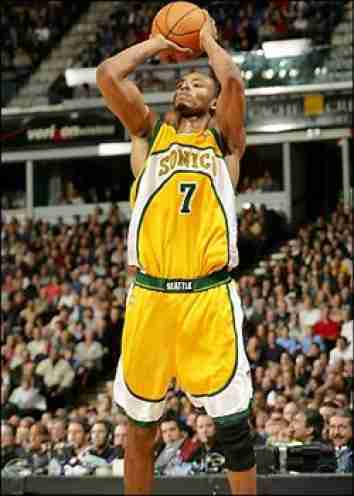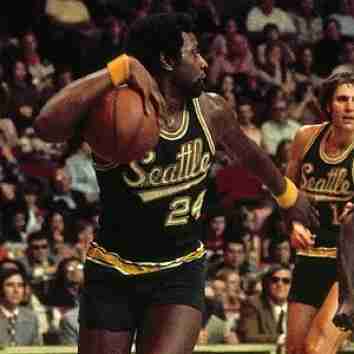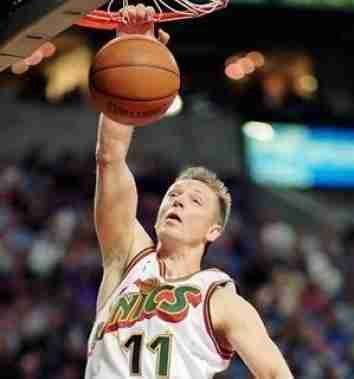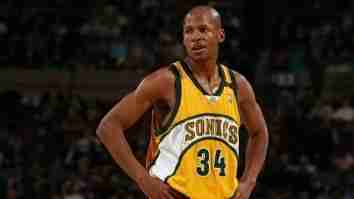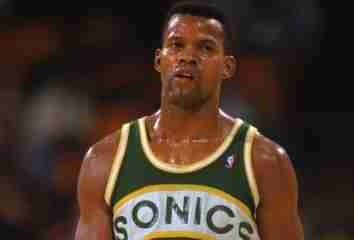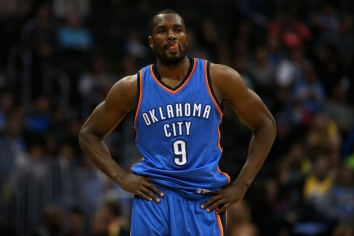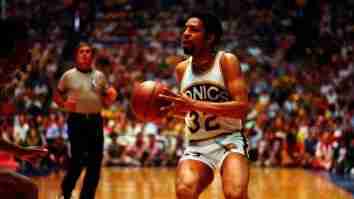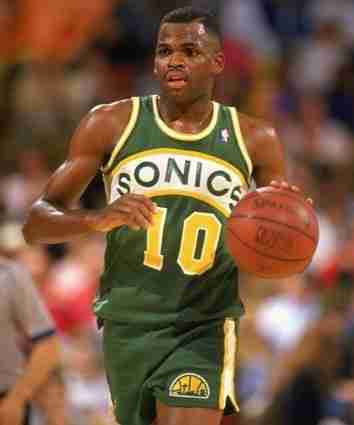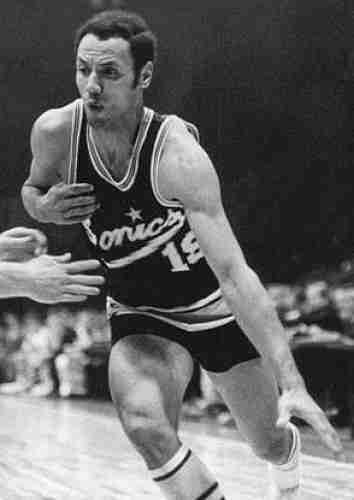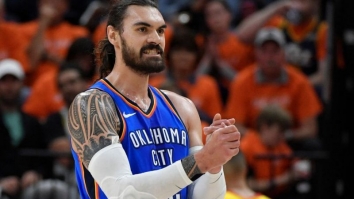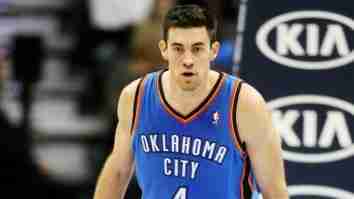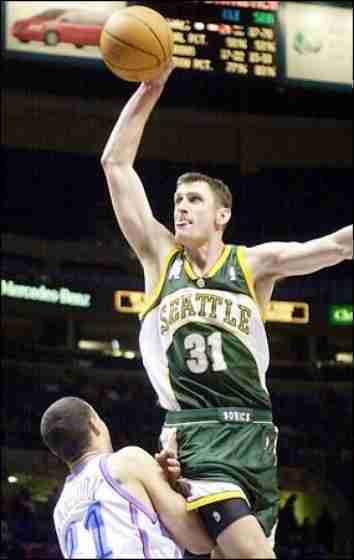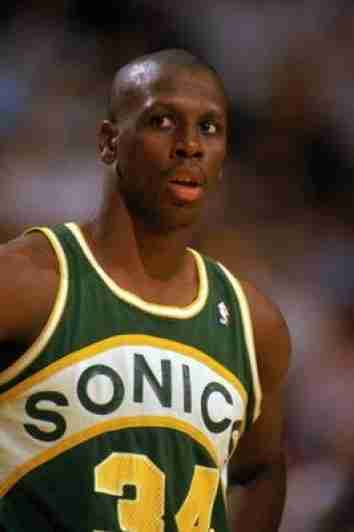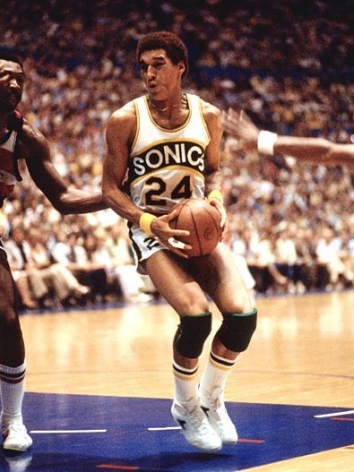Top 50 Oklahoma City Thunder
This could actually change very quickly.At present, the Oklahoma City Thunder own the history of the Seattle SuperSonics but should Seattle get a franchise back, it would be a shared history and make this all very confusing.
Let’s cross that bridge if we come to it!
The Seattle SuperSonics would enter the National Basketball Association as an expansion team in the 1967-68 season and by the mid-’70s the team became pretty good. The Sonics would go to the NBA Finals in 1978 in a losing effort against the Washington Bullets. They would meet the Bullets again in the Finals in 1979, however, the result was different as this time the boys from the Emerald City took the title, which to date is the only one in franchise history.
Seattle would reemerge as a league power in the 1990s and in 1996, led by eventual Hall of Famer, Gary Payton would go back to the Finals only to lose to Michael Jordan and the Chicago Bulls. Good seasons would still follow, but like in the cases of so many other teams, the decline would come and blame would also fall on the facility. This would lead to relocation to Oklahoma City.
With Kevin Durant in tow, the now named Oklahoma City Thunder would reach the 2012 NBA Finals and while they lost to the Miami Heat, there was still hope for a championship in the future, though with the loss of Durant to free agency to the Golden State Warriors, the light has certainly dimmed. It would fall even further after Russell Westbrook left.
This list is up to the end of the 2022/23 season.
Note: Basketball lists are based on an amalgamation of tenure, traditional statistics, advanced statistics, playoff statistics and post-season accolades.
Russell Westbrook is one of the best scorers in the game…period.
When you are nicknamed the “Glove” it is expected that you are one of the greatest defensive players of all time. This is exactly what you get with Gary Payton.
One more season in Oklahoma would have probably put Kevin Durant in the number one spot for the Sonics/Thunder list.
Dubbed the “Reign Man” by the Seattle faithful, Shawn Kemp was best known for his many kids with multiple women as he was for his on the court skill.
With your Center, you hope that he can give you a double-double on a somewhat regular basis. Sikma averaged that seven times as a SuperSonic all of which saw him go to the All Star Game.
Signing with Seattle as a Free Agent, Gus Williams became a top scorer in the NBA. Williams would watch his numbers climb in the first three years and would have likely saw an increase in the fourth season had he not sat out the entire campaign due to a contract dispute.
Drafted later than most pundits thought he would be (he was 32nd overall and the last waiting in the “green room”, Rashard Lewis would blossom into stardom with the SuperSonics. In the 2004-05 season, Lewis would make his first of two All Star Games (his second would be with the Orlando Magic) and rattle off three straight 20 Point per Game seasons. He remains one of the most prolific three point shooter in Sonics/Thunder history.
Spencer Haywood challenged the rules of the National Basketball Association by declaring himself eligible for the draft after his sophomore season in college. The NBA refused to allow him to play (as the rule at the time was that a player was not NBA eligible until the college class graduated) so he went to the upstart American Basketball Association and promptly won the league MVP as a rookie. As you can imagine, somebody from the…
The first German star of the National Basketball Association, Detlef Schrempf was already an All-Star (with Indiana) when he came to Seattle but it was in the state of Washington where he would become a national star. Schrempf was a part of the Sonics' push to the 1996 Finals and would make two more All-Star Games while playing for Seattle. Schrempf would post his best scoring season with 19.2 PPG (1994-95) as a Sonic.
In every full season that Ray Allen spent with Seattle, he was named an All-Star. Known for his sweet shooting skill, Allen’s season average never dipped below 23 Points per Game (as a Sonic) and without question, he was considered the king of the three-point shot. Allen would later become part of a “big three” with Paul Pierce and Kevin Garnett and win a Championship in Boston but guaranteed there were many in Seattle cheering…
Seattle is a beautiful city, but for Dale Ellis it had to be a paradise after being traded there.
From the Republic of Congo, Serge Ibaka fine-tuned his craft with the Oklahoma City Thunder, where he would become one of basketball's most prolific blockers.
Known for his sweet outside shot, “Downtown” Freddie Brown was a productive Shooting Guard for thirteen seasons, all of which were with the Seattle SuperSonics. Brown would be one of the first true beneficiaries of the three point line as he was the first leader of three point percentage when the rule was instituted in the 1979-80 season. The season before, Brown (though coming off of the bench) captained the Sonics to their only NBA…
A defensive minded Guard, Nate McMillan played all twelve of his seasons in the National Basketball Association with the SuperSonics. Five seasons, McMillan would average over 2 Steals per Game, including a 3.0 run in 1993/94 that would lead the league. Twice he would make Second Team Defensive honors. While McMillan was not known for his offense, he was a decent distributor and had solid Assists numbers throughout his career.
Inducted into the Naismith Basketball Hall of Fame as both a player and a coach, Lenny Wilkens was a player for Seattle for four seasons going to the All Star Game in three of them.
The Jason Momoa of the National Basketball Association, Steven Adams, played the first seven seasons of his NBA career with the Oklahoma City Thunder.
You hear a lot about "glue guys" in the NBA and the players that may not be statistical beasts but have an intangible that makes a team want to keep them. Such a player was Nick Collison, who was a star at the University of Kansas but was a bench player with the Seattle SuperSonics/Oklahoma City Thunder for all fourteen (2004-05 to 2017-18) seasons in the NBA. Collison rotated between Power Forward and Center, where…
The son of Hall of Famer, Rick Barry, Brent Barry was one of the most accurate shooters during his time in Seattle. Known for his three pointer, Barry would never shoot below .400 from behind the arc, including one season (2000-01) where he led the NBA. Barry would also lead the Association twice in Effective Field Goal Percentage and once in True Shooting Percentage.
One of the most popular players in Seattle SuperSonics history, “The X-Man”, Xavier McDaniel was an All Star in 1998 and would average over 20 Points per Game with Seattle. The beloved forward would help the Sonics go deep into the playoffs multiple times, even when he was used in a bench role. McDaniel would post decent numbers as an offensive rebounder, a trait that would make him popular everywhere he went.
Dennis Johnson would take over the starting Shooting Guard role for the Seattle SuperSonics and the super-athletic Johnson would dazzle fans with his dunking and attention to defensive detail. Johnson was not just a huge factor in Seattle’s first NBA Championship; he was named the Finals MVP.


